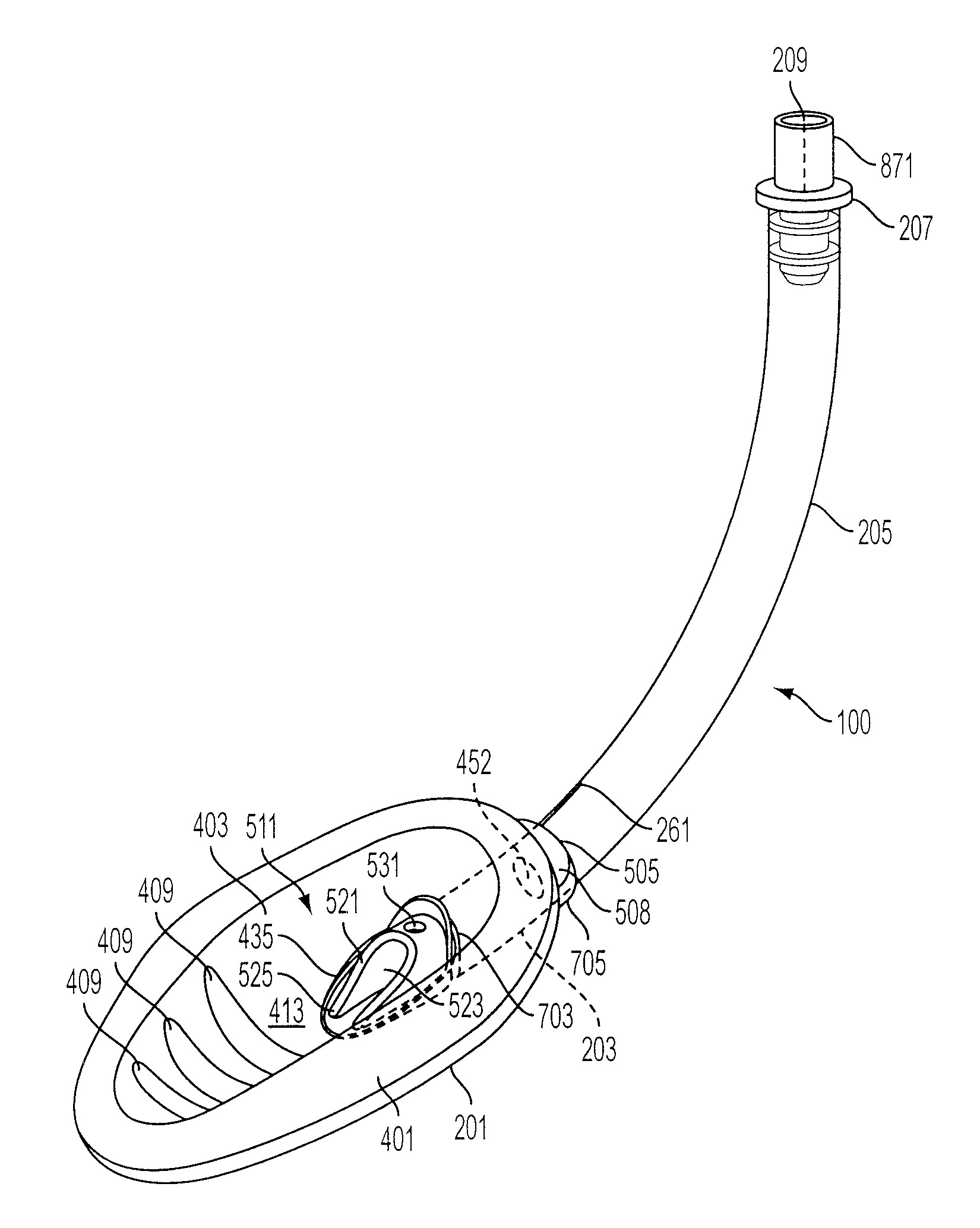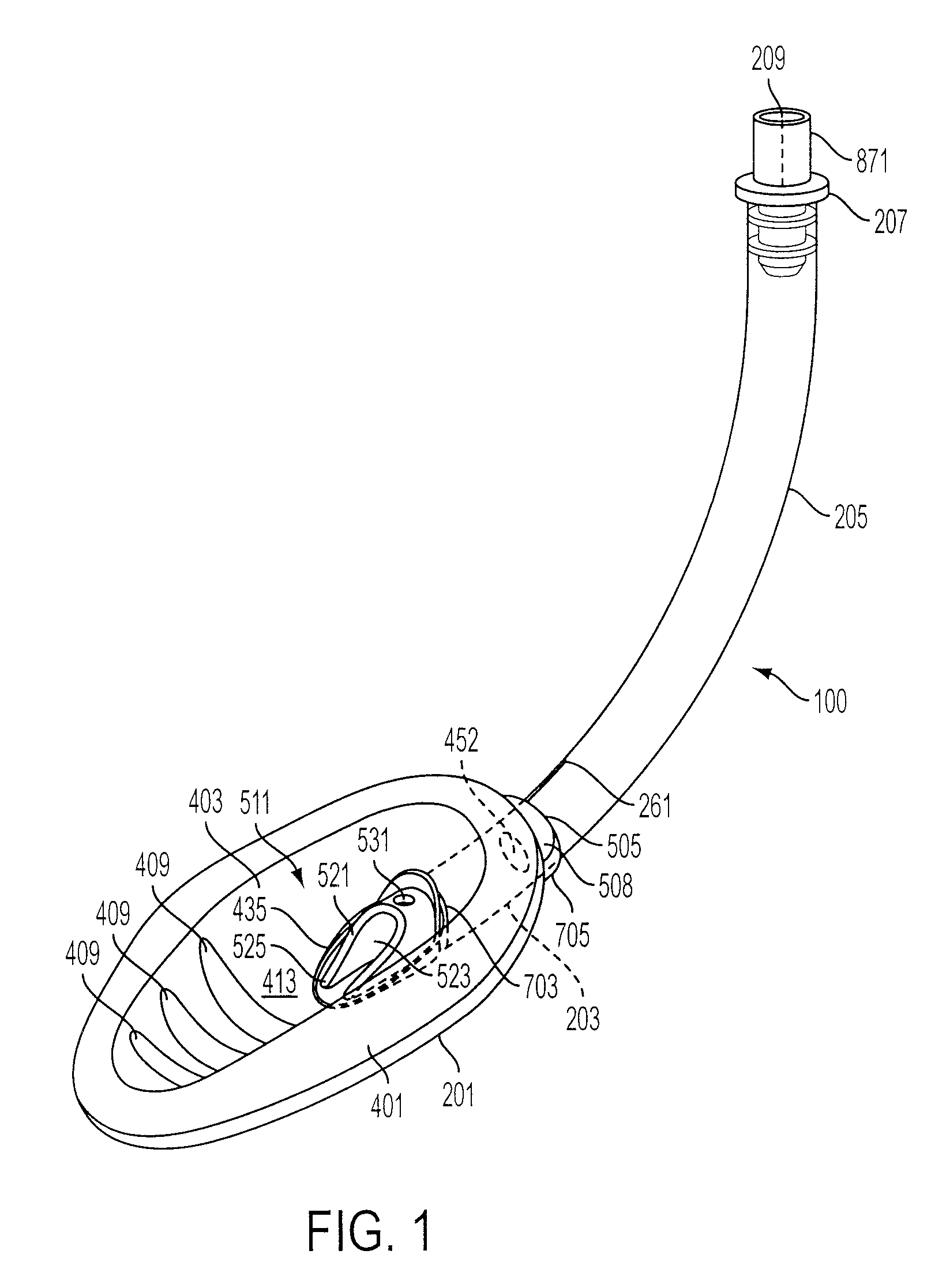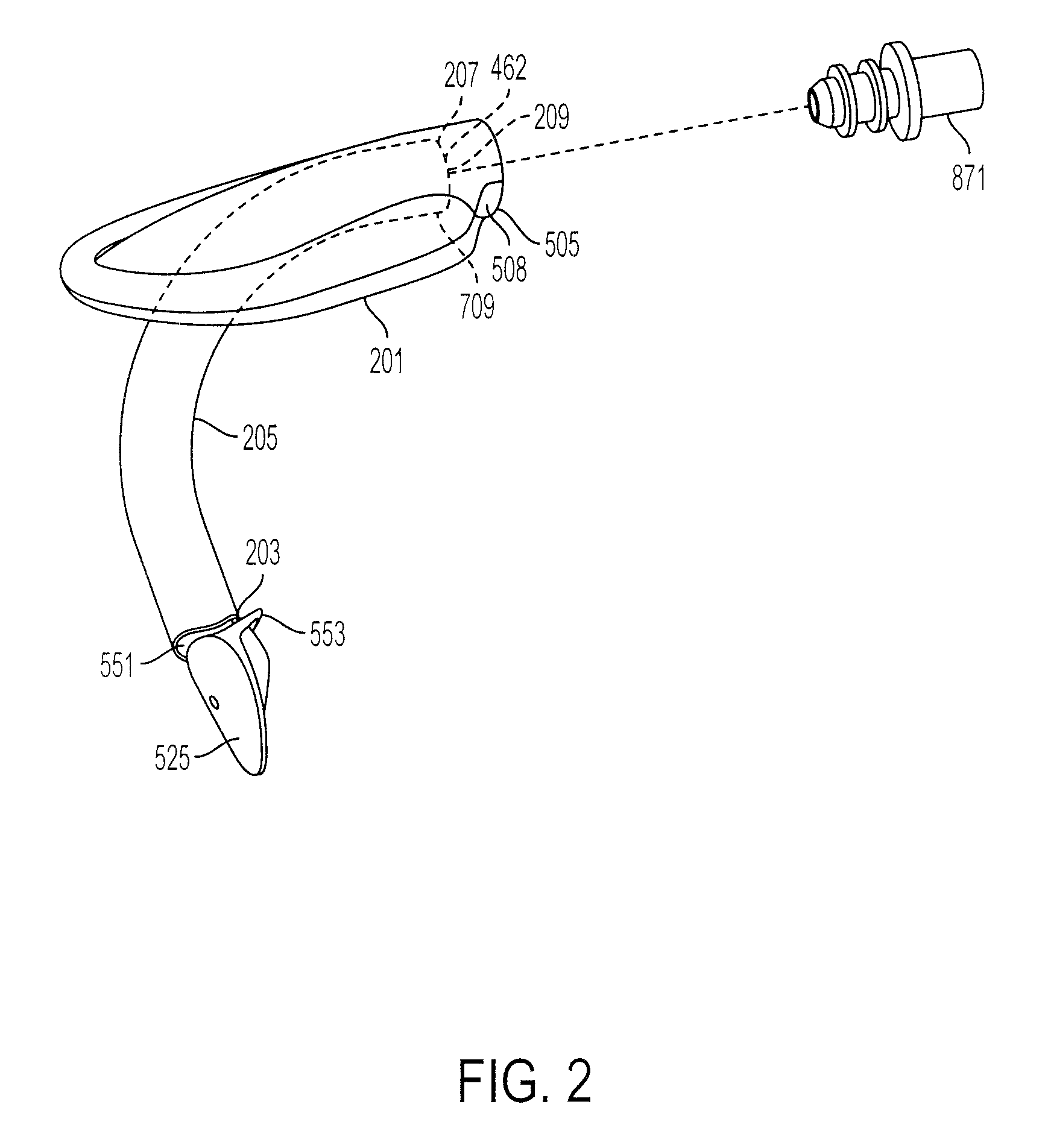Self-pressurizing supraglottic airway
a supraglottic airway and self-pressurizing technology, applied in the field of artificial airway devices, can solve the problems of unsatisfactory pressure on throat tissue, tissue fatigue and damage, and exacerbate the problem, so as to increase the strength of the sealing ring and increase the pressure the sealing ring imparts
- Summary
- Abstract
- Description
- Claims
- Application Information
AI Technical Summary
Benefits of technology
Problems solved by technology
Method used
Image
Examples
Embodiment Construction
)
[0032]The following detailed description illustrates by way of example and not by way of limitation. Described herein, among other things, is an embodiment of a supraglottic airway which includes a shield for sealing with the larynx which is designed to exert greater pressure, and therefore a stronger seal, when an assisted inhalation is being provided for the patient during positive-pressure ventilation. Specifically, the supraglottic airway has a shield (201) including a sealing ring (401). The ring (401) is in gaseous (or more generally fluid) communication with the airway path through which artificial respiration air is provided to the patient. While the supraglottic airway described herein incorporates certain features in the shape and arrangement of the shield (201) for improved placement in the airway, it should be recognized that these features are not required and the sealing rings (401) and related structures discussed herein can be used on airways of other shapes and for...
PUM
 Login to View More
Login to View More Abstract
Description
Claims
Application Information
 Login to View More
Login to View More - R&D
- Intellectual Property
- Life Sciences
- Materials
- Tech Scout
- Unparalleled Data Quality
- Higher Quality Content
- 60% Fewer Hallucinations
Browse by: Latest US Patents, China's latest patents, Technical Efficacy Thesaurus, Application Domain, Technology Topic, Popular Technical Reports.
© 2025 PatSnap. All rights reserved.Legal|Privacy policy|Modern Slavery Act Transparency Statement|Sitemap|About US| Contact US: help@patsnap.com



